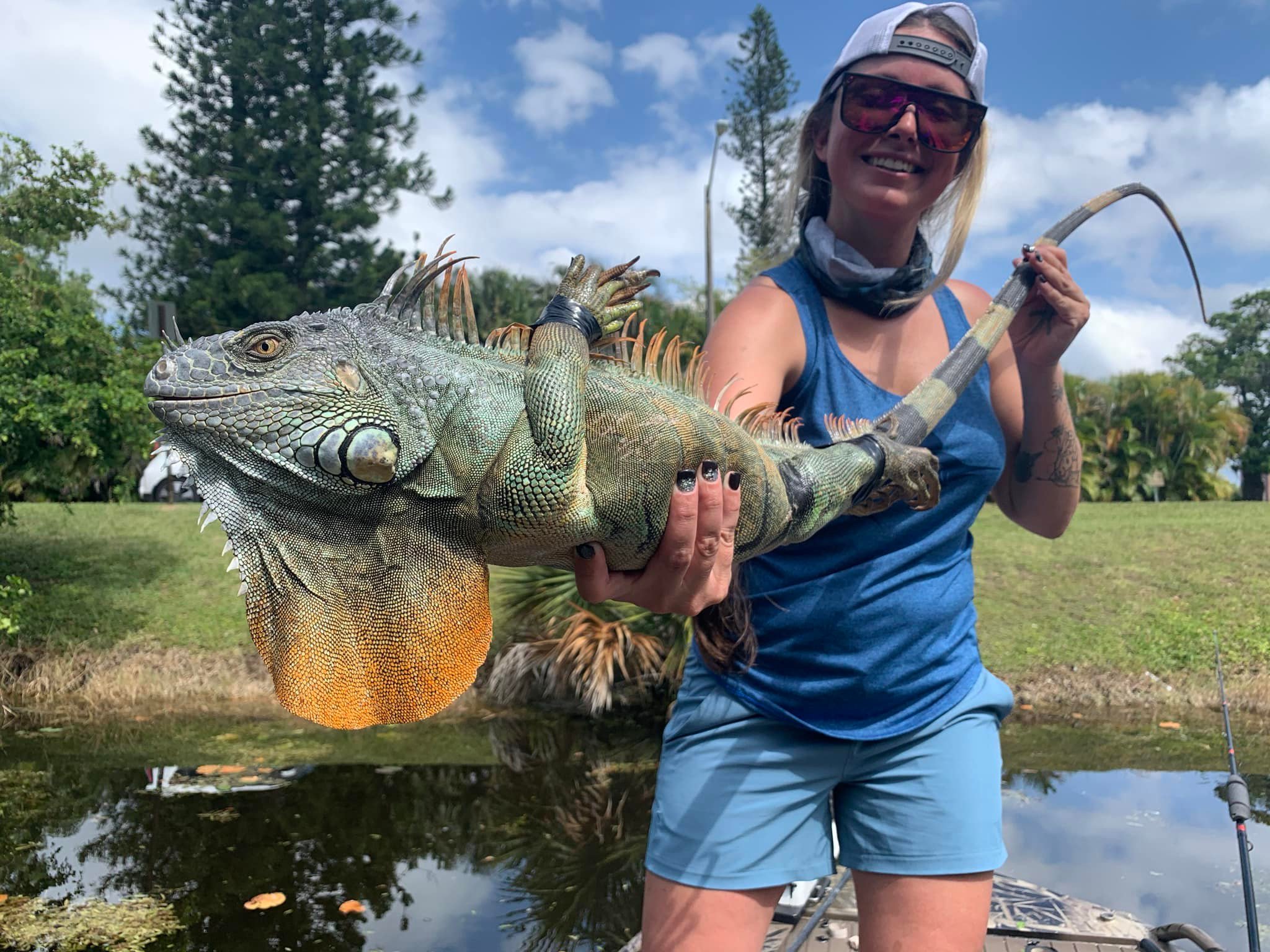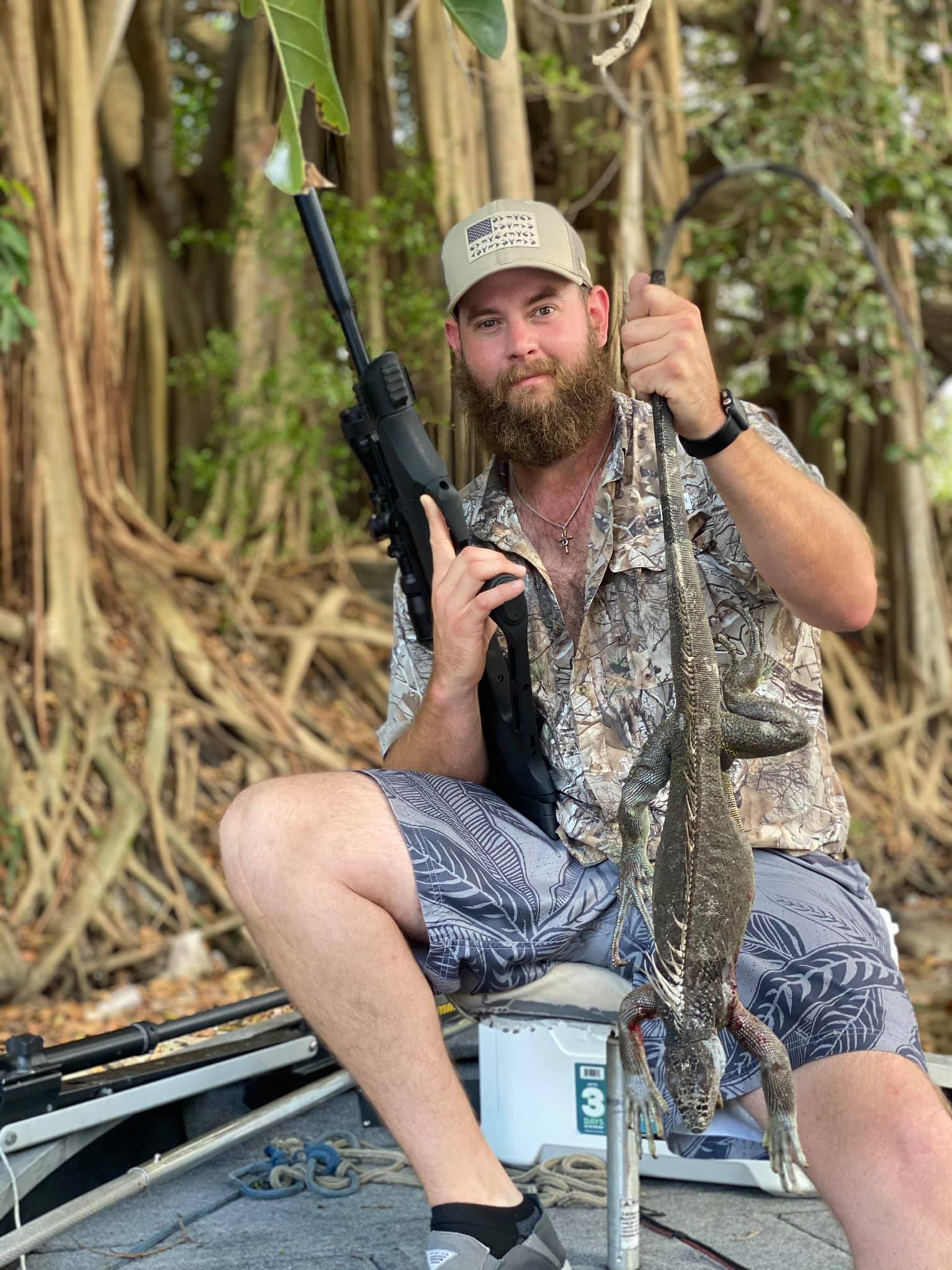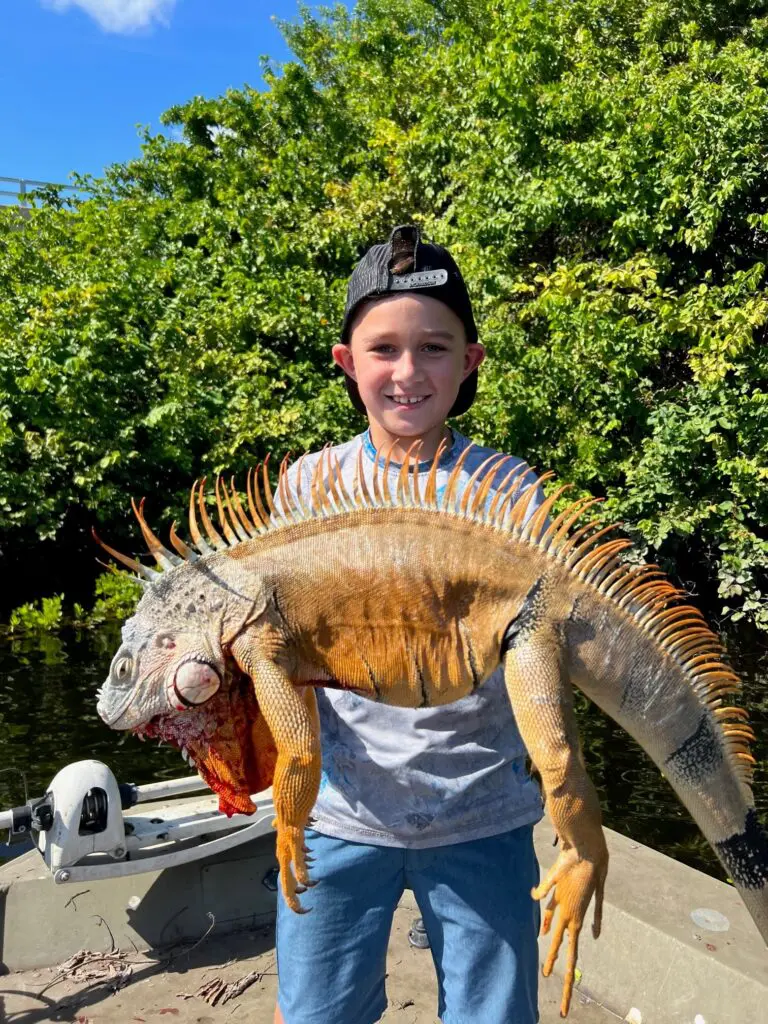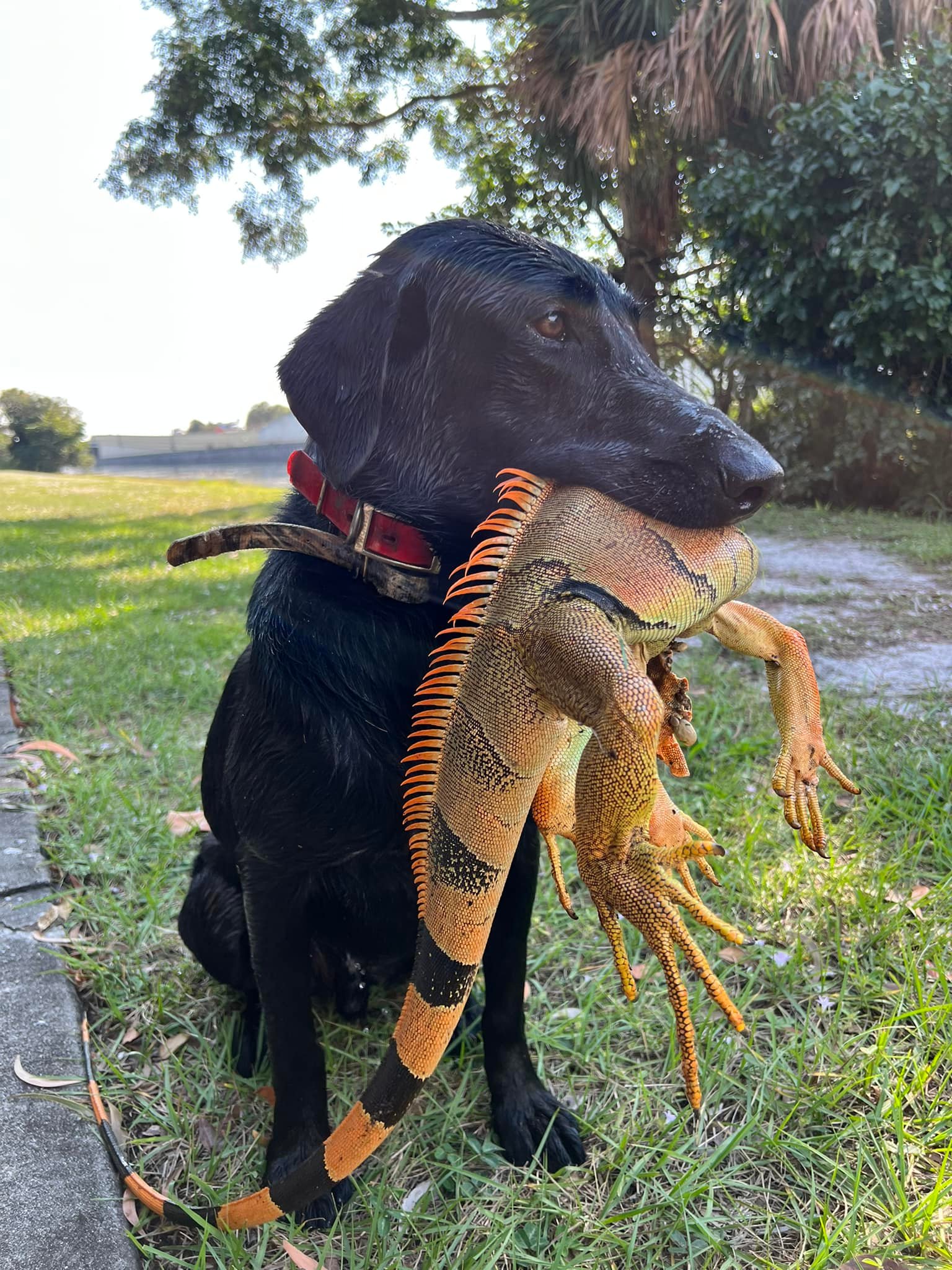If you’ve taken a trip to South Florida, chances are you’ve encountered this spiky, exotic looking creature lurking in the mangroves, the canals and generally…everywhere. However, these aren’t your friendly, pet-store variety of reptile. While they seem to be a Floridian novelty, iguanas are not native to the state and first arrived in the 1960’s as stowaways on ships from Central and South America. In some areas where predators are few and habitat is plentiful these lizards can grow as large as five feet.
In 2019, the Florida Fish & Wildlife Commission issued a statement listing the iguana as an invasive species because of the immense destruction they cause to native habitat and wildlife. The commission gave the public permission to humanely kill them, year-round on private property with landowner permission, or on any of the 25 managed public lands. The Commission also stated that iguanas can be killed without a license or permit, making this a popular hunt for tourists visiting the state. The push to remove these invasive lizards has started a cottage industry of iguana hunting safaris throughout the state, enabled by air-rifles and blow-dart guns.
How are they destructive?
Iguanas behave unlike other invasives in that they are primarily herbivores and enjoy eating the fruits and vegetables that homeowners and farmers plant for human consumption. While their grazing is cause enough for removal, their underground burrows and nests also destroy the integrity of roads and seawalls, creating needless public works projects. Another hazard of the unchecked iguana population (besides falling out of trees when the weather turns cold) is the salmonella that their droppings contain. With their propensity to lounge everywhere, they create biological hazards wherever they go.
How Can I Hunt Them?
Hunting iguanas represents a unique set of challenges that hunters don’t commonly face with other invasives. Iguanas don’t live in “wild” areas. They live in developed areas close to humans. Naturally, to reduce the complaints of noise and potential property damage, hunting with firearms is not usually permitted. Because of the proximity to people and property, iguana control is regularly done with air rifles. These air rifles aren’t the red ryders of your childhood. These pre-charged air rifles fire .22 or .25 caliber pellets in excess of 1000FPS, with more than enough power to dispatch large lizards quickly.
Where Can I Hunt Iguanas?
Because of their intolerance to cold temperatures, iguanas are only found in the southernmost part of Florida, from Lake Okeechobee to further south. A prominent hot spot for them is the Miami Dade area. Hunts can be conducted in a number of ways, but hunting iguanas by boat on the area’s numerous canals offers a fast and exciting experience.
What Can I Do with Iguanas?
Besides making a unique mount for your office, iguanas are also edible. The meaty legs and tail cook similarly to alligators and have a chicken-like texture and flavor, making them an easy protein to experiment with. Odds are, after returning from your trip, you will be the only person in your group to say they hunted iguanas. And almost certainly the only person to have eaten one.
Are you interested in trying your air rifle marksmanship on some miniature dragons? Check out our list of iguana hunting outfitters here at Venku.com.




